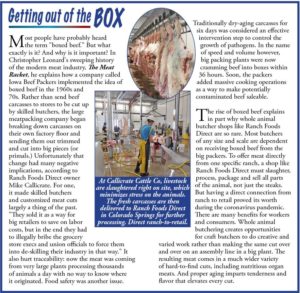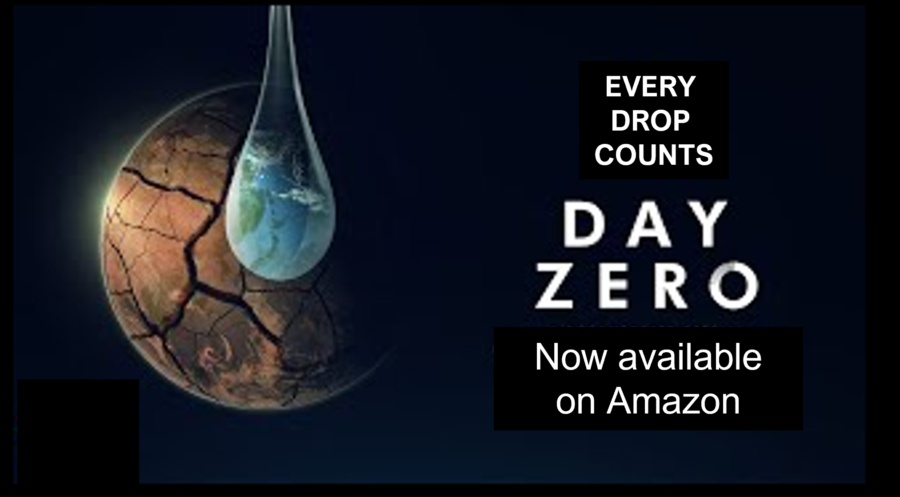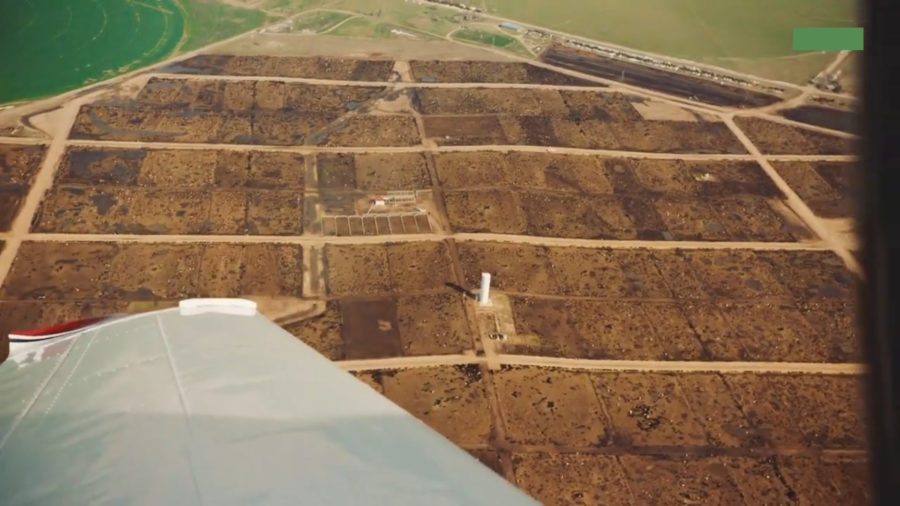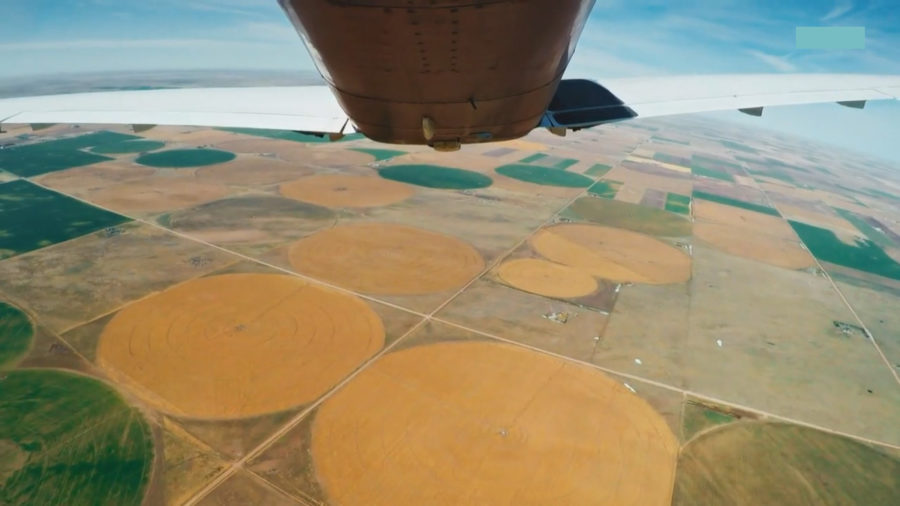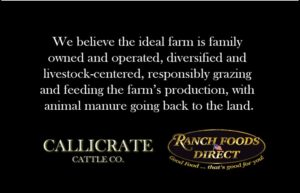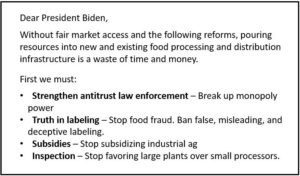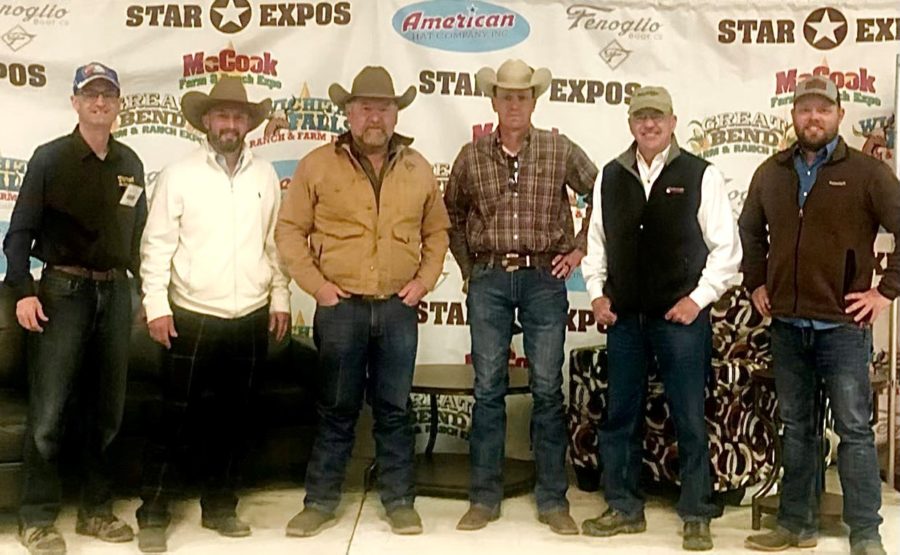The Cattle Price Discovery and Transparency Act will not restore competition but rather lock in the four-packer domination by preserving the packer’s ability to use captive supplies to control the market.
April 18, 2022
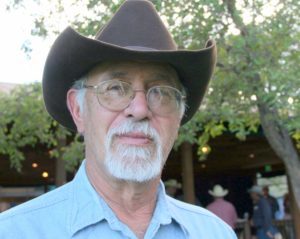
I wish that I could love the Cattle Price Discovery and Transparency Act but I just can’t. I rather like the part contributed by Senator Fisher that increases the reporting of the fed cattle market. The more information available for a cattle seller the better. But market reporting does not overcome the structural deficiencies of the fed cattle market.
“This Bill focuses on controlling the negotiated spot market, when the real problem is captive supplies, or if you prefer – Alternative Marketing Agreements.”
The rest of the Bill is supposed to improve price discovery. This latest iteration of what started as the 50/14 concept is complicated and bureaucratic. If I understand correctly, USDA will be directed to determine the minimum percentage of fed cattle to be purchased through the negotiated spot market in each of nine separate marketing regions. They are allowed two years to accomplish this task. The dominate packers will, eventually, be required to use the negotiated spot market to buy the number of cattle determined to be sufficient by USDA.
There is a lot that is wrong with this approach, and one is that it is heavily bureaucratic. It will require a regiment of USDA employees to make sure that the scheme is functioning as it is supposed to. As we all know, every branch of government that is supposed to regulate an industry, ends up with that agency captured. Enforcement will also depend upon future Presidents liking the scheme.
“Anyone can read the Packers and Stockyards Act and understand that all captive supplies should be considered illegal.”
This Bill focuses on controlling the negotiated spot market, when the real problem is captive supplies, or if you prefer – Alternative Marketing Agreements (AMAs). Granted, the two are related. The fewer cattle purchased on the negotiated spot market, the more that are committed through captive supply. The core problem is that this bill acquiesces to some level of captive supplies that is as yet to be determined by USDA. Anyone can read the Packers and Stockyards Act and understand that all captive supplies should be considered illegal.
The central problem is, therefore, that the Cattle Price Discovery and Transparency Act guarantees captive supplies. A recent economic study conducted by F. Garrido et. al. of Georgetown University, “Buyer Power in the Beef Packing Industry,” concludes: “… that a one percent increase (in) the fraction of cattle purchased under AMAs is associated with a 5.9% reduction in the cash market price.” How much AMAs (aka captive supplies) are we supposed to consider acceptable?
Another recent study, “Multi-Plant Coordination in the US Beef Packing Industry,” written by C. Pudenz and L. Schultz of Iowa State University, states that: “U.S. beef packers openly began employing multi-plant coordination during the last decade. … this leads to wider spreads between downstream beef prices and upstream fed cattle prices.” Their conclusion is that by using advanced information technology, the dominate packers are now able to coordinate their procurement practices across the multiple slaughter plants that they own. At times, by closing or slowing a plant in one area, allows them to lower the prices paid for fed cattle and, thereby, increase profits across their multiple plants. The paper does not speculate, but we can wonder if this same information technology allows packers to better coordinate their purchasing strategy with the competing firms.
“Have you ever wondered why the Main Street of your community is a ghost town, this is why.”
Clearly, something has changed in the cattle market. Captive supply levels were a problem ten or twenty years ago, but are a much greater problem today. According to USDA, the farmers share of the beef dollar has fallen from 44.3% in 2016 to 36.8% in 2021. That is a loss of 8.6 cents of every dollar spent on beef. In 1980, before the packing cartel gained control of the cattle market, the farmers share was 63%.
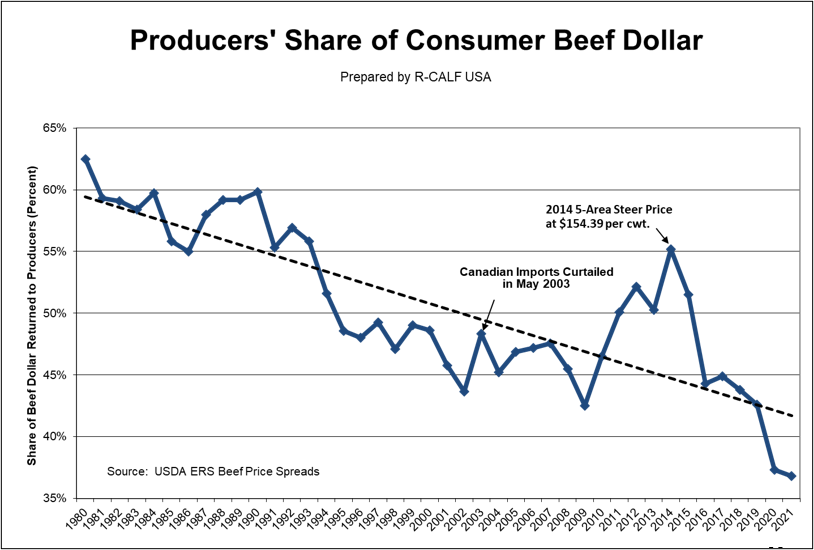
As we see, over the course of the domination by the big four packers, producers have lost a full one quarter of the value of the cattle we raise. Have you ever wondered why the Main Street of your community is a ghost town, this is why. We do not generate enough profits in ranching to support a vibrant prosperous rural community. The problem with the Cattle Price Discovery and Transparency Act is that while it may improve the confidence in the negotiated spot market to be used as a basis to settle the captive supply formula cattle, it does nothing to restore competition to a seriously dysfunctional industry.
Maybe some of you, who have been kind enough to read this far into this op/ed, are tired of me beating the same drum, but the solution is staring us in the face. We have only to do what they did in 1921. The Consent Decree stemming from the passage of the Packers and Stockyards Act required that the Packer Cartel bid against each other in a competitive market that they did not own or control.
“The beauty of this approach is that it requires a minimum of USDA employees to make sure that the markets are honest …”
Therefore, once again, make the Packers bid against each other in a market in which: “producers and sellers in general have access and is designed to solicit more than one blind bid.” Maybe at first there will only be the four dominate packers competing in the market, but it will not take long for smaller packing concerns to understand that they are able to competitively buy fed cattle without being targeted by predatory practices. The beauty of this approach is that it requires a minimum of USDA employees to make sure that the markets are honest, because the entire system is owned and operated by private enterprise.
Some economists have been telling us that without the prevalence of captive supplies (aka AMAs) ranchers and feeders will not be compensated for producing quality cattle and the resulting beef will be rejected by consumers. As usual, these packer apologist economists have it completely backwards. Requiring that a base price be set at the time that packers and feeders enter into a formula forward contract does not prevent feeders from receiving a premium for carcass quality. In fact, it would promote the use of formula forward contracts. A competitive market price would be set when the contract is entered into, resulting in actual price discovery. Because the terms for the premium for quality would be built into the contract, producers would be compensated for that quality. Under this approach, there would be less need for a spot market to serve as the basis to settle contracts.
“He was confident that the Cattle Price Discovery and Transparency Act has real momentum. Too bad, because the concept is deeply flawed.”
A few weeks back I was in Washington DC and had a meeting with the legislative assistant for Senator Tester of Montana. He was confident that the Cattle Price Discovery and Transparency Act has real momentum. Too bad, because the concept is deeply flawed. I understand that livestock producers are desperate for Congress or the President do something – anything – and this Bill has the endorsement of a number of agricultural organizations.
Unfortunately, the Cattle Price Discovery and Transparency Act will not restore competition but rather lock in the four-packer domination by preserving the packer’s ability to use captive supplies to control the market. The only people besides the packers who will likely benefit are the Chicago Mercantile speculators who will have a better basis to settle their futures contracts. I would urge everyone to reconsider and offer an amendment that requires packers to buy all of their cattle in a transparent competitive forum. Problem solved!
Gilles Stockton
Grass Range, Montana
